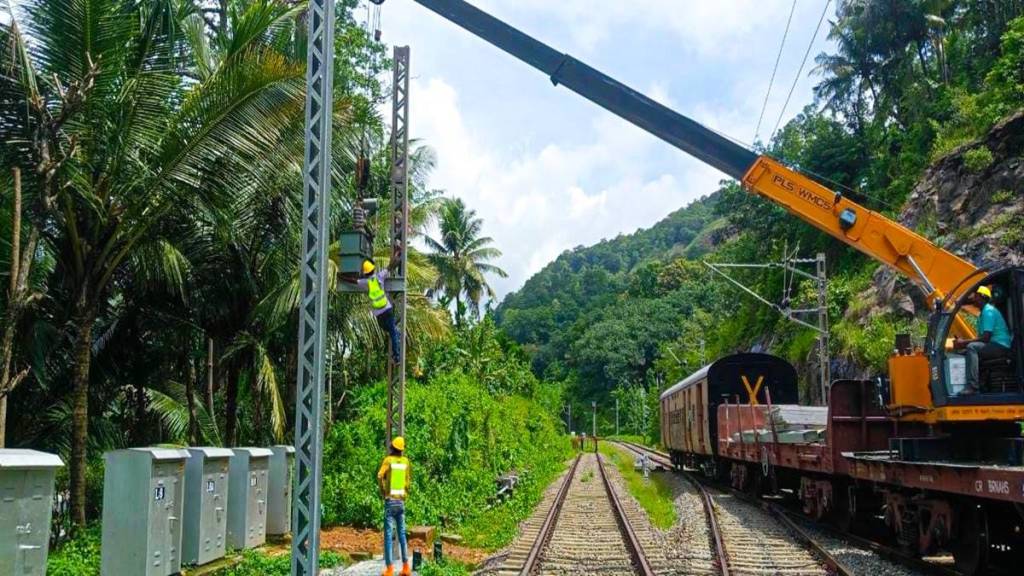On Tuesday, the Ministry of Railways shared an update related to the electrification work between Sengottai and Punalur in the Tamil Nadu state of India. The total length of the project is 49 km, and the estimated cost is Rs 61 crore.
Works Completed
- Foundation casting: 92%
- Mast erection: 80%
- Wiring: 47%
Benefits of the project:
a) Seamless connectivity from Kollam to Chennai and
b) Reduced carbon footprint
Mission 100 per cent electrification
Reportedly, by 1 April 2023, Indian Railways had electrified 58,812 route kilometres (RKM). In other words, the national carrier has electrified about 90% of the total broad gauge network (65,300 RKM, including Konkan Railway).
The target for 100% electrification of the broad gauge (BG) route is December 2023. The budget outlay for 2023-24 is Rs 8,070 crore.
Central Organisation for Railway Electrification
Founded in 1979, the Central Organisation for Railway Electrification (CORE) is a unit of Indian Railways. It is responsible for the electrification of the network. It has its headquarters in Prayagraj, Uttar Pradesh. Project units operate in nine cities – Lucknow, Bangalore, Chennai, Secunderabad, Ahmedabad, Ambala, Danapur, New Jalpaiguri, and Jaipur.
Indian Railways aims to become a net-zero (carbon emission) railway by 2030.
What is Net Zero Carbon Emission?
It is a state of net-zero carbon dioxide emissions. The term is used in the context of carbon dioxide-releasing processes associated with agriculture, transportation, energy production, and industry.


